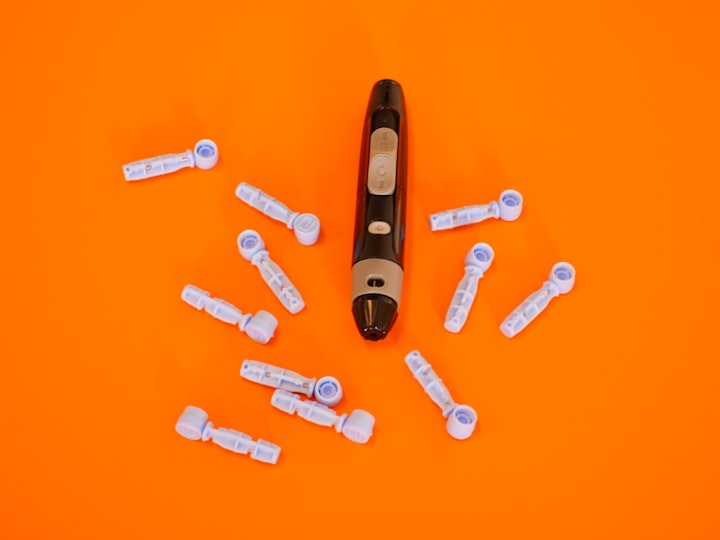10 Effective Ways to Lower Your Blood Sugar Levels
High blood sugar health awareness

10 Effective Ways to Lower Your Blood Sugar Levels
Maintaining healthy blood sugar levels is crucial for overall well-being, especially for individuals with diabetes or prediabetes. High blood sugar levels can lead to various complications, while stable levels promote better health and prevent long-term complications. In this article, we will explore ten practical and evidence-based strategies to help reduce blood sugar levels naturally.
Regular Physical Activity
Engaging in regular physical activity is one of the most effective ways to lower blood sugar levels. Exercise increases insulin sensitivity, allowing cells to utilize glucose more efficiently. Aim for at least 150 minutes of moderate-intensity aerobic activity, such as brisk walking or cycling, per week. Strength training exercises can also help by improving muscle mass and insulin sensitivity.
Healthy Diet Choices
Diet plays a crucial role in managing blood sugar levels. Focus on consuming a balanced diet rich in fiber, whole grains, lean proteins, and healthy fats. Avoid sugary foods, refined carbohydrates, and excessive saturated and trans fats. Incorporate foods with a low glycemic index, such as vegetables, legumes, and nuts, as they release glucose slowly into the bloodstream, preventing sudden spikes.
Portion Control and Regular Meal Timing
Controlling portion sizes and maintaining regular meal timings can help regulate blood sugar levels. Consuming smaller, balanced meals throughout the day prevents excessive glucose release and aids in maintaining stable levels. Avoid skipping meals, as it can lead to overeating later, causing sudden glucose spikes.
Stay Hydrated
Proper hydration is essential for managing blood sugar levels. Drinking an adequate amount of water helps in flushing out excess glucose through urine. Additionally, staying hydrated ensures optimal bodily functions and supports overall health.
Manage Stress Levels
Chronic stress can raise blood sugar levels through the release of stress hormones like cortisol and glucagon. Engage in stress-reducing activities such as meditation, deep breathing exercises, yoga, or hobbies that promote relaxation. Adequate sleep and maintaining a healthy work-life balance also contribute to stress management.
Get Sufficient Sleep
Inadequate sleep affects blood sugar regulation and insulin sensitivity. Aim for 7-9 hours of quality sleep each night. Establish a consistent sleep routine by going to bed and waking up at the same time every day. Create a sleep-friendly environment, limit screen time before bed, and avoid caffeine or stimulating activities close to bedtime.
Monitor Carbohydrate Intake
Carbohydrates have the most significant impact on blood sugar levels. Be mindful of carbohydrate choices and their portion sizes. Opt for complex carbohydrates, such as whole grains, vegetables, and legumes, which are digested slowly and have a lesser impact on blood sugar levels. Consider consulting with a registered dietitian to determine an appropriate carbohydrate intake for your specific needs.
Increase Fiber Intake
Fiber-rich foods, including fruits, vegetables, whole grains, and legumes, can help regulate blood sugar levels. Dietary fiber slows down the absorption of glucose, preventing sudden spikes. Aim for 25-38 grams of fiber per day, gradually increasing your intake to avoid digestive discomfort.
Stay Accountable with Regular Monitoring
Regularly monitor your blood sugar levels using a glucose meter to assess the effectiveness of your lifestyle modifications. This practice helps you stay accountable and make necessary adjustments. Keep a record of your readings and share them with your healthcare provider for proper guidance.
Medication Adherence and Consultation
If you have diabetes and are prescribed medication, it is crucial to take it as prescribed. Proper adherence to medication and regular consultations with your healthcare provider are vital for managing blood sugar levels effectively. Discuss any concerns or questions you may have, and work collaboratively to optimize your treatment plan.
Lowering blood sugar levels is essential for maintaining optimal health and preventing diabetes-related complications. By adopting these ten evidence-based strategies, including regular physical activity, healthy diet choices, portion control, stress management, and regular monitoring, you can effectively manage and reduce blood sugar levels. Remember to consult with your healthcare provider for personalized advice based on your individual needs. With dedication and consistency, you can achieve better blood sugar control and improve your overall well-being.
About the Creator
Bridget Dyke
As a passionate writer of fiction and general articles, I invite you to embark on an extraordinary literary journey with me. With immersive stories and thought-provoking articles that will captivate your mind and touch your soul.






Comments
There are no comments for this story
Be the first to respond and start the conversation.